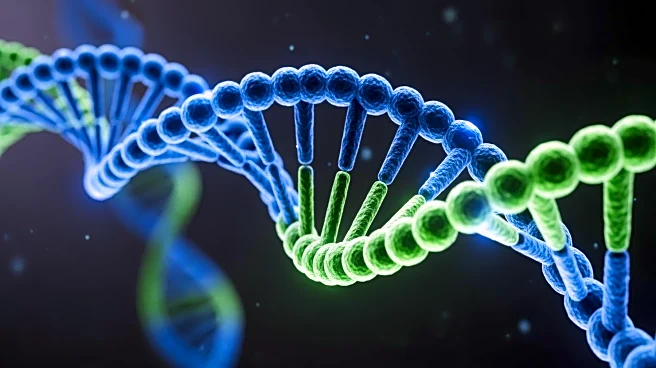What's Happening?
A study utilizing data from the UK Biobank has identified genetic variations associated with the immunogenicity of COVID-19 vaccines. The research focused on the HLA and IGHV gene regions, revealing that
certain genetic markers influence the immune response to vaccination. The study employed genome-wide association analysis to pinpoint SNPs linked to vaccine-induced immunogenicity. Findings suggest that genetic factors play a significant role in determining the effectiveness of COVID-19 vaccines, with implications for personalized vaccination strategies.
Why It's Important?
Understanding the genetic basis of vaccine immunogenicity can lead to more effective vaccination strategies tailored to individual genetic profiles. This research could pave the way for personalized medicine approaches in immunization, enhancing vaccine efficacy and reducing adverse reactions. The study's insights into genetic influences on vaccine response are crucial for optimizing public health strategies, especially in managing future pandemics. It highlights the potential for genetic screening to inform vaccine deployment and improve outcomes.
What's Next?
Further research is needed to validate these findings and explore their application in clinical settings. Studies may focus on developing genetic tests to predict vaccine response and guide personalized vaccination plans. Collaboration between geneticists and public health officials will be essential to integrate these insights into vaccination programs. The study's results could influence future vaccine development and distribution strategies, emphasizing the importance of genetic factors in public health planning.











